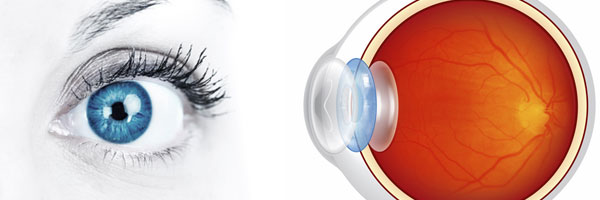
The surgery procedure is one and the same. It is merely a matter of “medical necessity” according to medical insurances. Having cataracts before surgery affects your vision beyond the help of glasses and is then deemed “medically necessary” to improve your vision. However, if significant cataracts are not vision-altering, insurance companies see the reason for the procedure as “cosmetic”, meaning that glasses will fix your vision, but you are simply choosing to be free from them.
We prefer to perform surgery on the second eye two or three weeks after the first eye allowing adequate time for the first eye to fully heal.
All surgery involves some risk, so yes, it is serious. Our surgeons use the latest techniques available to create the smallest of incisions allowing more rapid recovery. Our surgeons' success over many years has allowed them to gain the up-most confidence that we can provide quality care for your eyes.
A mild sedative is used to give a local anesthetic, along with anesthetic eye drops; thus no general anesthesia is required. There is usually no discomfort felt during the surgery.
Lens exchange surgery is done on an outpatient basis right here at our own facility. The actual surgery takes approximately 20 minutes, but like any surgery, there is some preparation beforehand. After a short stay in the post-operative recovery area, the patient may return home within a half-hour following the surgery wearing a bandage over that eye for one night only. The patient will be sent home to relax and refrain from strenuous activity. The patient will return the following morning to have the bandage removed and will be given prescription eye drops to guard against infection, along with complete instructions on how to care for your eye.
While most patients notice an improvement to their vision the very next morning, it may take up to 4 weeks for the vision to stabilize. The full visual outcome will not be noticed until both eyes are implanted.
Generally, patients return to their surgeon the day after surgery. However, some patients may have been referred to their surgeon by their local optometrist and can choose to continue their post-operative follow-ups with their doctor. If the patient is having any difficulties or doubts, they may contact the surgeon at any time.
Yes, but this symptom is often temporary and is rarely debilitating. After the surgery, some patients complain of glare or halo around their peripheral vision mostly at night, but there are a number of things that the doctor can do to improve the patient’s vision at night including eye drops or night driving glasses.
No, since the natural lens, which becomes a cataract, is replaced with an implant, you will never need to have cataract surgery later. Occasionally after the surgery, scar tissue may develop over the implant and the doctor may do a simple, painless, laser to remove the scar tissue. Once this is done, further surgery related to your lens may not be necessary.
A clear lens exchange means that there were no cataracts affecting your vision; therefore, insurance companies deem this a “cosmetic” procedure and will not cover the costs. Most patients feel that it is well worth having surgery earlier allowing them many years with very good, stable vision.
We now offer excellent financing options to help you enjoy your best vision free from reading glasses. Why wait? Ask today and see which implant option is best for you!